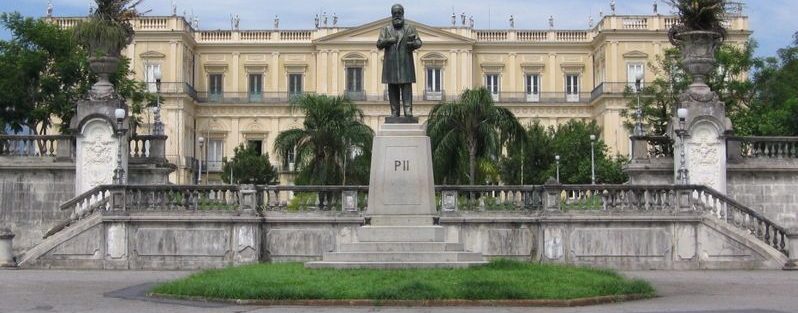Brazil museum fire and the loss of culture
In early September of this year, Brazil’s most historically and scientifically significant museum was gutted by fire overnight.
The Museũ Nacional, in Rio de Janeiro, was founded in 1818 to promote the cultural and economic progress of its relatively young nation; Brazil is only 500 years old. Just this June the museum celebrated the 200th anniversary of its inception.
Its internationally important collections were vast, and included – amongst many other things – ‘Luzia’, Brazil’s oldest human remains, and a collection of audio recordings of the indigenous languages of Brazil, many of which are no longer spoken by anyone. Altogether, the museum held twenty million items.
Just this June the museum celebrated the 200th anniversary of its inception
Despite the immense significance of the artefacts it housed, the museum had recently fallen into disrepair due to an astounding lack of resources. Blame for the devastating fire has been placed upon the Brazilian authorities unwilling to devote more funding to the museum, and many people feel more could have been done to protect its “invaluable” contents. The collective anger and frustration at this injustice is especially potent now as Brazil grieves this massive blow to its scientific and cultural heritage.
To quantify what exactly has been lost is an immensely difficult challenge. Physically, it’s estimated that perhaps ninety per cent of the contents of the museum has been lost to the flames. However, to the residents of Rio de Janeiro, the curators of the museum, and the wider world, there is far more to grieve than just the physical contents of the museum.
Blame for the devastating fire has been placed upon the Brazilian authorities unwilling to devote more funding to the museum
This raises a couple of questions about where museums fit in modern society. What exactly do we lose when places like the Museũ Nacional are destroyed? And what do these museums represent?
Collections at museums like the Museũ Nacional give a permanence to histories and traditions that are otherwise only passed down the generations through word of mouth. The documents that have been destroyed are, therefore, utterly irreplaceable. Perhaps this profound sense of permanent loss is what led Marina Silva, Brazilian presidential candidate, to brand the fire, “a lobotomy of the Brazilian memory”.
The Museũ Nacional was a great example of a museum that brought marginalised voices to the forefront of history. Their collections relating to the indigenous people of Brazil were unique and prolific, making them invaluable to the people they represented, and bringing a greater sadness to their loss.
The Museũ Nacional was a great example of a museum that brought marginalised voices to the forefront of history
Museums also provide a wonderful place for families to spend days out. One of the many draws the Museũ Nacional held for the people of Brazil was that it was a place where generations had taken their children to learn about their history – so much so, in fact, that visits to the museum became a family tradition for many people. When we lose museums, we lose the chance to create memories with our families, and this is yet another loss which the people of Brazil must mourn.
Furthermore, museums bring people together in a way that other places simply can’t. They can unite even the most divided of nations or communities with a sense of origin and history. When we lose museums, we lose another chance to interact with people, past and present. We lose stories, memories, and experiences.
When we lose museums, we lose another chance to interact with people, past and present
With the sense of loss so strong, perhaps the focus should be turned to what was not compromised when the fire ravaged the museum. Its curators, its visitors, its scientists and its historians still provide the passion and knowledge it takes to rebuild what was lost – and that is what must now happen, to the best of their ability.
Museums and the documents, artefacts, and knowledge they hold have a special role in the preservation of history and science. The loss of Brazil’s Museũ Nacional and the grief that has followed just goes to show how important museums remain in displaying and cultivating the history and culture of modern nations.

Comments